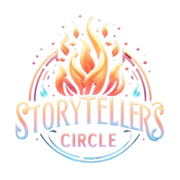I'm not sure a world can ever be TOO detailed. The more detail, the greater the immersion. That said, there is a case of too much information at once. It can be very difficult for players to absorb a 20 page write-up of a very intricate world, and to take it all in before even deciding if they want to join the roleplay, let alone start!
It all comes down to how you PRESENT your information. Think of it like a book. The roleplay is the entire book. Front cover, back cover, and everything in between. The front/back covers of the book are your advertisement. The entirety of the book CONTENT beginning to end reveals aspects of the world over time as the story progresses. You wouldn't have the entire book's lore on the back cover - it would wind up being a book unto itself if you did!
I tend to recommend providing information in tiers. A short, concise and catchy introduction to a roleplay should be the first thing a person reads. This is what's going to hook them and make them want to learn more.
After that allow deeper reading, but broken down into sections and tiers. This allows players to get a rough overview of each 'area' of lore before being able to delve deeper at their leisure. An example might be a world with multiple countries. If all the characters are starting out in one, the characters are likely to only know basic overview information on the other countries anyways, so the players don't need to read in depth information. HOWEVER if a player is playing a character who grew up in a foreign country, that player will require more in depth information. So having it available is good, but in a way that is easy to sort through what is and isn't needed.
Information can also be expanded upon over the course of a story. A specific town in a specific country may have a VERY rich history. Take the Salem Witch Trials in the real world for example. Lot of history there for that specific region of the US, but unless your story revolves AROUND the Salem Witch Trials, it's likely to never be mentioned in any of the general information write-ups. But that doesn't mean your characters couldn't travel there and encounter reference to these historic events during their time there. It fleshes out a sense of depth and uniqueness to that specific area, but doesn't burden your players to need to read an entire history book before starting in your roleplay.
